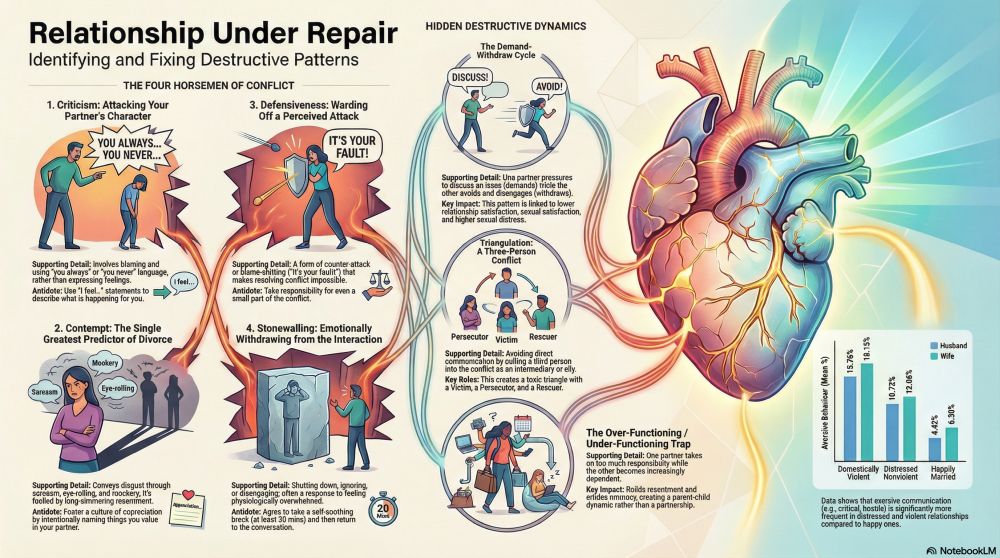Newlywed Challenges & Solutions
Top 7 Newlywed Problems (By Severity)
Evidence-Based Solution Effectiveness
Bottom Line: Research shows that most marital problems remain stable over the newlywed years, but couples often experience heightened stress from financial pressures, communication challenges, and unmet expectations. Evidence-based solutions emphasise communication skills, realistic expectations, and early intervention.
The Top 7 Research-Identified Problems
1. Financial Stress & Money Management
Financial strain consistently ranks as the number-one newlywed issue. Couples struggle with debt, budgeting, spending differences, and merging financial systems. Research shows couples entering marriage without a strong asset base are 70% more likely to divorce within three years.
2. Communication Breakdown
Many newlyweds discover they haven’t developed effective communication habits. Misunderstandings, defensiveness, and unresolved conflict accumulate, leading to resentment. Poor communication is a consistent predictor of relationship dissolution.
3. Unmet Expectations
Much early discord stems from unrealistic or unspoken expectations about roles, responsibilities, and daily life. Couples expect perpetual happiness but face ordinary realities. Unaligned expectations erode satisfaction and increase conflict.
4. Balancing Work and Relationship
Couples often struggle to find enough quality time while managing career demands—especially when both have high-pressure jobs or differing schedules. Work stress commonly spills into relationship tension.
5. In-Law and Family Dynamics
Blending families introduces tension around traditions, holidays, and boundaries. Couples must learn to establish clear, unified limits with extended family while still respecting cultural or familial values.
6. Loss of Intimacy and Romance
As couples settle into routine, both physical and emotional intimacy may decline. Affection and sexual frequency often drop unless partners make conscious efforts to maintain connection and attraction.
7. Individual Space vs. Togetherness
Finding the right balance between independence and closeness is difficult. Some partners become clingy, others distant. Healthy marriages require both personal freedom and shared emotional presence.
Evidence-Based Solutions
Financial Management
Create a joint budget and set shared financial goals. Research shows financial transparency and cooperative planning are critical. Use the “two yes, one no” rule—major purchases proceed only with mutual enthusiasm.
Communication Training
Establish ground rules: avoid blame, address the issue not the person, and ensure both have uninterrupted time to speak. Behavioural Couple Therapy techniques are proven to enhance communication patterns.
Expectation Management
Have ongoing discussions about roles, traditions, and household expectations. Studies show that couples who explicitly clarify expectations early experience fewer later conflicts.
Scheduled Connection Time
Plan regular date nights and set aside daily time for meaningful interaction. This maintains connection and prevents careers or routines from crowding out intimacy.
Boundary Setting
Agree on firm boundaries with extended families. Discuss and plan holidays and special occasions in advance to avoid conflict and reduce stress.
Maintaining Intimacy
Be deliberate about physical affection and romance. Research shows sustained attraction requires continued effort—plan surprises, flirt, and prioritise sex and affection.
Individual Identity Preservation
Encourage each other to maintain personal interests and friendships. Supporting individual growth brings renewed energy and perspective into the relationship.
Research-Based Interventions
Behavioural Couple Therapy (BCT)
The most empirically supported treatment for marital distress, BCT targets communication and behavioural change. Studies consistently show significant improvement in marital satisfaction.
The Gottman Method
Based on over 40 years of research, this approach helps couples manage conflict, strengthen friendship, and nurture admiration. It achieves 87% accuracy in predicting relationship outcomes.
Premarital Education Programs
Couples who receive premarital education are more likely to seek help early and maintain higher satisfaction over time. Preventive learning strengthens resilience against later conflict.
Critical Research Findings
Stability of Problems: Most marital challenges remain relatively constant over time. The issue isn’t worsening problems but declining tolerance for them.
Early Intervention: Patterns formed in the first year often persist throughout marriage. Addressing difficulties early leads to better long-term outcomes.
Gender Differences: Research finds wives typically experience sharper declines in satisfaction during the first year, but successful couples follow parallel adaptation patterns thereafter.
Prevention Over Treatment: Preventive approaches—like premarital education and relationship skills training—are far more effective than waiting for serious problems to develop.


